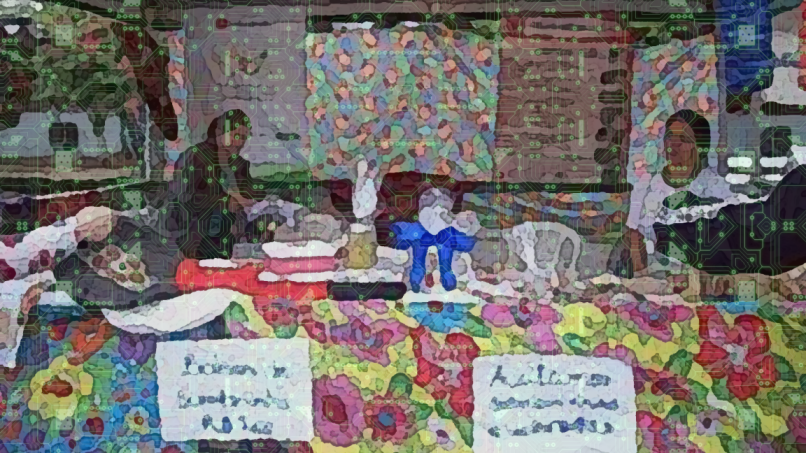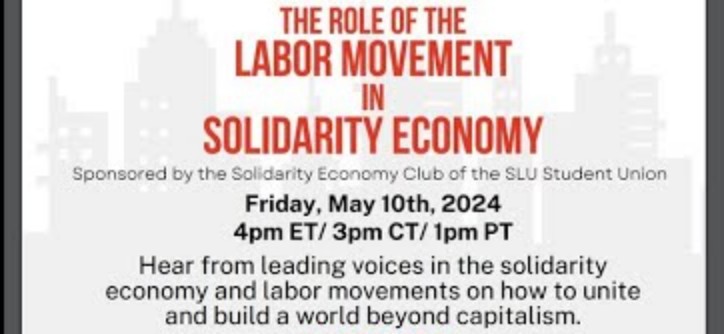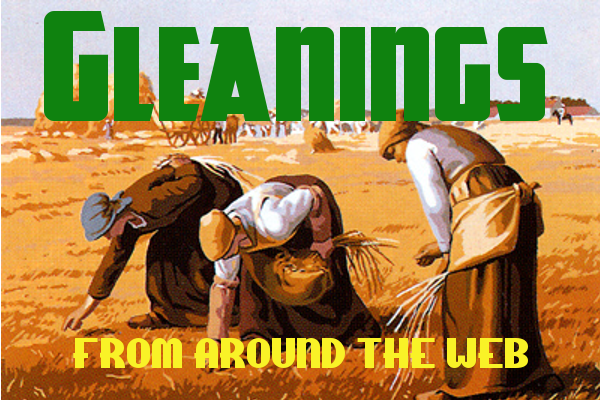
This week, we have the second part of our interview with Brazilian solidarity economy theorist and practitioner Euclides Mance, in which he discusses the importance of open source software, the creation of the "Copysol" license, organizing "solidarity circuits," and some cultural and institutional barriers the solidarity economy must overcome if it is to reach its full potential.
Then, Rebecca Lurie, Jessica Gordon-Nembhard, Shaywaal Amin, and Alex Kolokotronis discuss the intersections of the Labor and Solidarity Economy movements, and how each can support and benefit the other.
Liberation Economist - Part 2
by Euclides André Mance & Matt Noyes
When you speak to people involved in public policy, as I did when I worked on contracts for UNESCO and the FAO in the Zero Hunger program in Brasilia, you run into very strong resistance from government leaders and technicians, who change the final proposals of the program to suit their particular understanding. In the end, there was no more talk of economic liberation, just reproduction of the hegemonic economy, presented as if it were a viable alternative for development.
The Role of the Labor Movement in Solidarity Economy
by Euclides André Mance
There has been increasing attention on the role of the labor movement in solidarity economy as union leaders seek new ways to fight back against the increasing precarity caused by neoliberalism, automation and AI. As evidenced by the Union Co-op Model, unions and the labor movement more broadly can significantly support solidarity economy initiatives. Meanwhile, the solidarity economy movement can benefit workers and unions by developing community-based support networks that create long-term stability and community empowerment.
What Do Residents Think of Community Development Organizations?
Shelterforce — Residents have considerable sympathy for the position that CBDOs have been put in—to carry out a lot of different kinds of work, all urgent, all at once, and without adequate funding. In particular, resident leaders recognize that CBDOs of and serving communities of color are often subject to the same adverse impacts of dominant narratives as residents...
Could Cooperatives Controlled by Incarcerated Persons Be Part of an Abolitionist Strategy?
The SELC — This MCLE examines how cooperatives led by incarcerated individuals can serve as a transformative abolitionist strategy. The workshop will delve into the California Prison Industry Authority's (CALPIA) Joint Venture Program, as well as efforts to draft legislation supportive of these cooperatives. We will also examine case studies and examples from around the world of models of incarcerated-led cooperatives, illustrating their effectiveness in societal benefits, and reduced recidivism. The panel will include Kelton O'Connor from Earth Equity, currently imprisoned in San Quentin, who will highlight the work being done to create cooperatives at San Quentin and the critical intersection of law, economic empowerment, and social justice...
Narratives of Cooperation, Resilience and Resistance
Academia.edu — While WBOs [worker buy-outs] are rarely contentious (labour conflict WBOs represent indeed a small share of the Italian WBOs), what we define here as Recovered Social Spaces (RSSs) are usually a more controversial phenomenon. RSSs arise in contexts in which there are at the same time labour conflicts, highly politicized actors and difficult conditions for the restoration of the original productive function of the company. They can be described as social and economic initiatives aimed at the recovery and reconversion of abandoned industrial spaces with the explicit aim of resisting the economic marginalization of labour, at the same time offering inclusive arenas for the (re)production of cultural and social capital...
Worker Co-Ops Have a Role to Play in Socialist Strategy
Jacobin — Fast forward to 2024. Once again, the Left is discussing strategies for political advance. It is clear that electoral campaigns on their own and short-lived protests are not enough to win durable victories. But unlike socialists of the past, the contemporary left’s discussions have largely ignored the strategic role that cooperatives — and the solidarity economy more generally, i.e., enterprises geared to serving the needs of workers and achieving broader social goals — can play in building up the Left’s power...
Like what you find on GEO?
Make a Donation Today!
Your tax-deductible contribution ensures that GEO can continue to provide independent grassroots content about the cooperative and solidarity economy movements.
Got something to say?
Let us know. Send your comments, suggestions, rants and article submissions to editors@geo.coop.
Follow us on Social Media
Mastodon: social.coop/@GEO_Collective
FB: facebook.com/GrassrootsEconomicOrganizing/
Twitter: twitter.com/@GEO_Collective
Our mailing address is:
Grassroots Economic Organizing
P.O. Box 115
Riverdale MD 20738-0115



